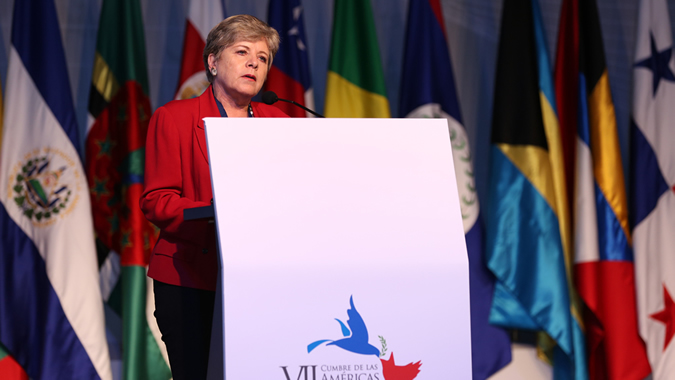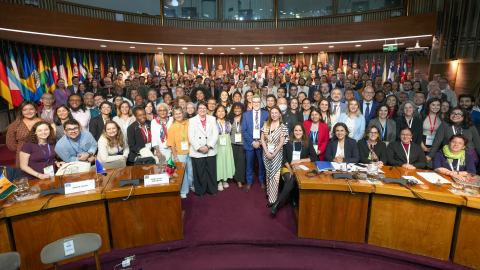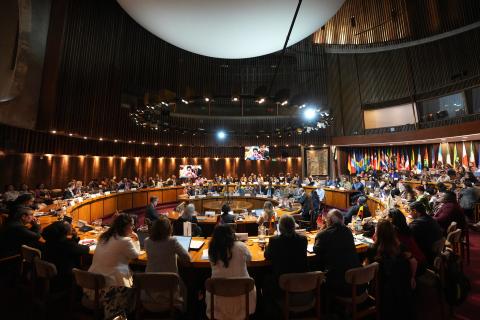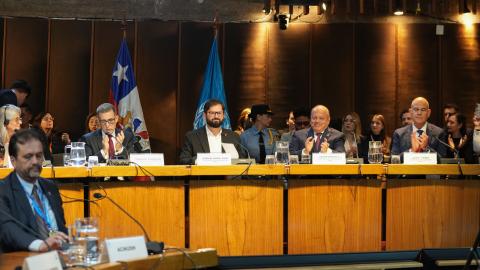Press Release
Latin America and the Caribbean must close structural gaps in terms of production, education and income levels to advance towards inclusive and sustainable development, because inequality conspires against the stability of democracies, Alicia Bárcena, Executive Secretary of the Economic Commission for Latin America and the Caribbean (ECLAC), said during two forums carried out in conjunction with the Seventh Summit of the Americas, which begins on Friday in Panama.
This week the regional United Nations organization reduced to 1% its projection for the region’s 2015 economic growth due to a context of deceleration and global volatility. This means that countries must redouble their efforts to achieve their development goals, taking a strategic long-term view.
ECLAC’s most senior representative participated on Thursday in the University Presidents’ Forum 2015, which was inaugurated by Panamanian President Juan Carlos Varela. She indicated there that the region needs a structural change that contemplates the diversification of countries’ production structures (to reduce dependence on commodities) and the strengthening of sectors that are more knowledge- and technology-intensive.
In a presentation entitled “Vision of Latin America and the Caribbean: Education for Structural Change and Equality,” Bárcena underscored the need to link the educational system more closely with the labor market since employment in Latin America and the Caribbean is concentrated in sectors that are low in productivity and also pay low wages.
In this sense, she called on countries to improve the quality of higher education and develop other alternatives to post-secondary non-university education, especially considering that the region shows a major imbalance between labor supply and demand.
On Wednesday, the senior United Nations official gave a presentation on economic growth and social inclusion at the Civil Society and Social Actors Forum. The event—inaugurated by President Varela and the Secretary General of the Organization of American States (OAS), José Miguel Insulza—also included the participation of former U.S. President Bill Clinton.
“We must substitute the dynamic of extraction for a culture of sustainability,” Bárcena said, advocating that social pacts be forged to carry out the various structural transformations that Latin American and Caribbean countries need. She specifically mentioned fiscal and labor pacts and broad accords in the productive sector and regarding investment, in addition to making progress on the governance of natural resources.
A new balance between the State, the market and society is needed urgently to “transform the culture of privileges into the culture of equality,” said the Executive Secretary, who was accompanied by ECLAC’s Deputy Executive Secretary, Antonio Prado; the Officer-in-Charge of the Office of the Secretary of the Commission, Luis F. Yáñez; and the Chief of ECLAC’s Office in Washington, Inés Bustillo.
In addition, Alicia Bárcena will form part of the delegation of United Nations Secretary-General Ban Ki-moon, who will arrive in Panama City on Thursday night to participate in the Summit of Heads of State and Government.
The Seventh Summit of the Americas, which will be held April 10-11, will bring together 35 high-level delegations from countries throughout the region, under the motto of “Prosperity with Equity: The Challenge of Cooperation in the Americas.”



